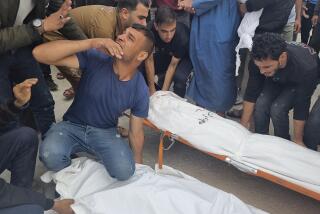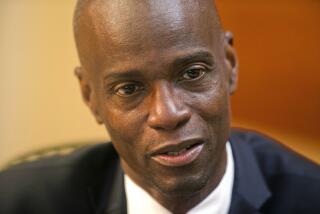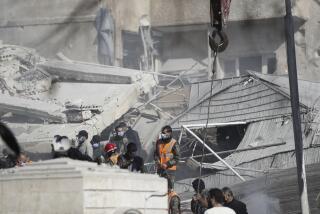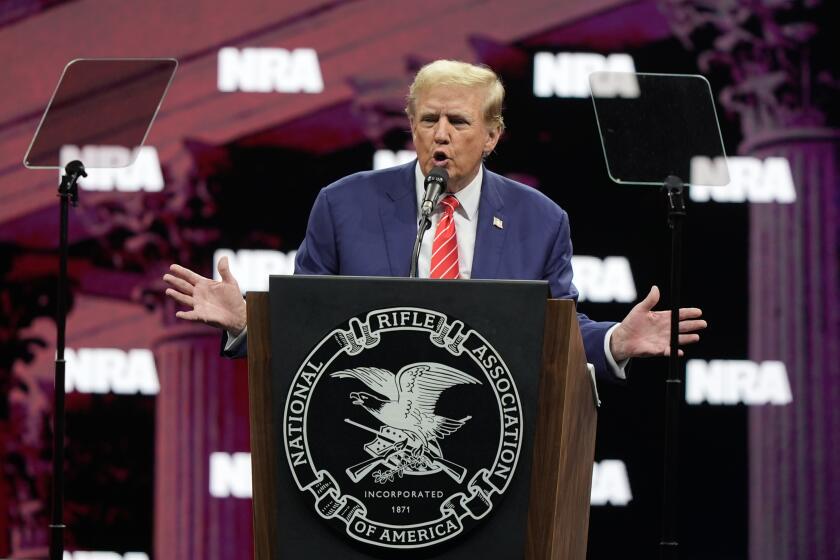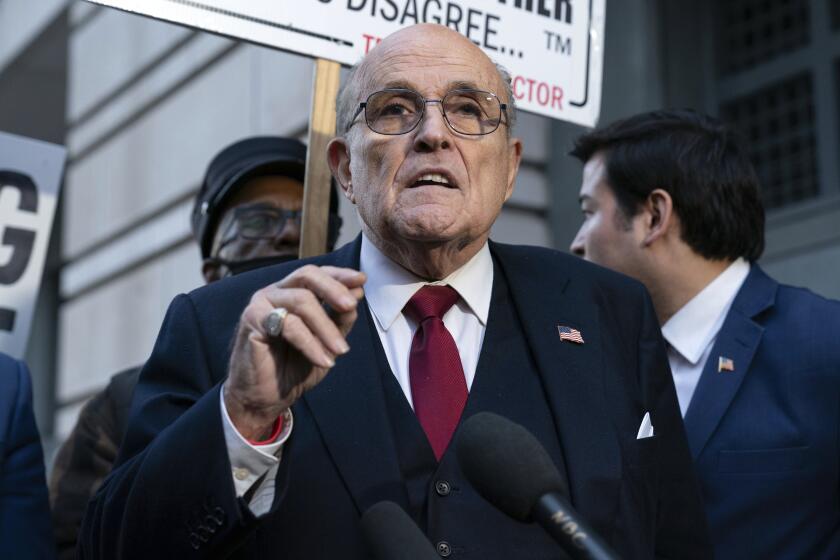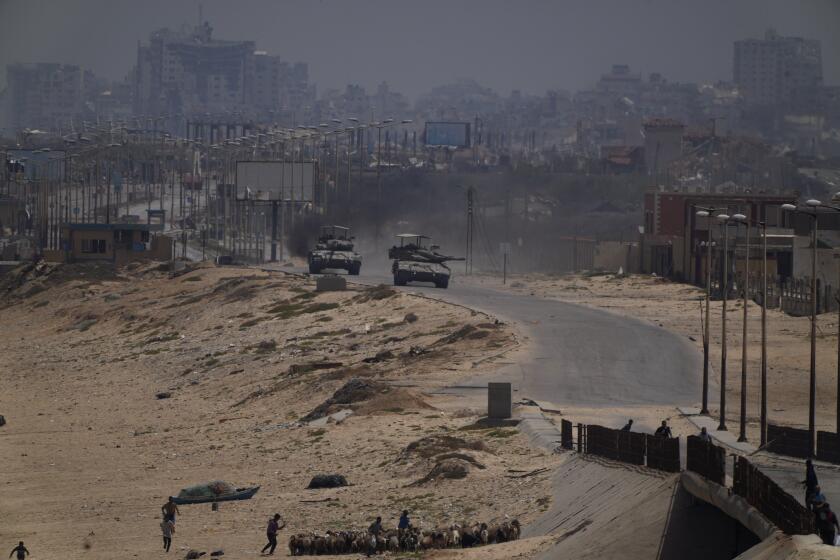Indictment issued in killing of ex-Lebanese leader Rafik Hariri
A United Nations-backed tribunal issued a long-anticipated indictment Thursday in the 2005 truck-bomb assassination of former Lebanese Prime Minister Rafik Hariri, a killing that stoked sectarian tensions in the region.
The identities of the four suspects were not released, and the indictment remained sealed. But local news reports suggested all four were Lebanese nationals linked to Hezbollah, a major militia and political party backed by Iran and Syria.
Syria and Hezbollah have denied any involvement in the highly polarized case. Hezbollah has denounced the tribunal as a product of a U.S.-Israeli plot.
Lebanese news reports identified one suspect as Mustafa Badreddine, who the Daily Star, a Beirut-based English-language daily, said is Hezbollah’s operations chief.
The newspaper said the indictment also named Salim Ayyash, a U.S. passport holder who is accused of leading the cell that carried out the assassination of Hariri.
There was no immediate comment from Hezbollah. The group had called for an end to the inquiry.
More indictments could be possible, but it remained unclear whether any Syrians might be targeted.
Conspiracy theories have run amok since the massive bomb exploded along the Beirut waterfront on Feb. 14, 2005, killing Hariri and 22 others in a passing motorcade.
The case has remained one of the most divisive issues in Lebanon, a nation battered by a 15-year civil war that ended in 1990 and by sundry other bouts of violence, including sectarian battles between Sunni and Shiite Muslims in 2008.
Hariri, a pro-West construction magnate, was a member of Lebanon’s Sunni community, which has been a rival of Hezbollah, a Shiite group.
Outrage about the assassination resulted in massive protests and the eventual ouster of the Syrian army from Lebanon after 29 years in the strategically situated and volatile nation of 4 million. Many allies of Hariri blamed Syria because of strains between the prime minister and Damascus.
The case could pose a dilemma for Prime Minister Najib Mikati, whose government is dominated by Hezbollah and its allies. He vowed to “deal with the developments with vigilance,” noting that indictments “are not judgments.”
Mikati pledged to “protect the nation and prove wrong those counting on the indictment to divide the Lebanese.”
Allies of Hariri and his Sunni-based political movement called on the government to move quickly to cooperate with the tribunal.
“Trying to obstruct is not only wrong and unethical, but it will also make any cloud hanging over a group thicker,” said Mohammed Shatah, who was an external policy advisor to former Prime Minister Saad Hariri, the slain leader’s son. “If people are indicted and are associated with a party or a political group, then those political groups should engage in this judicial process.”
The younger Hariri also called on the government to pursue the case fully.
“Today, we witness together a distinctive historic moment in the political, judicial, security and moral life of Lebanon,” said Hariri, whose government was toppled in January after Hezbollah and allied groups pulled their support over its cooperation with the tribunal.
Independent experts say it is extremely unlikely Hezbollah will hand over any suspects to the government. That raises the possibility that the indictment may be largely a symbolic victory for the Sunni community.
“Hezbollah will not turn them in and the Lebanese government will not do anything to apprehend them,” said Hilal Khashan, a political science professor at the American University of Beirut. “The indictment is nothing more than a statement.”
The indictment comes at a sensitive moment: The regime of President Bashar Assad in neighboring Syria is facing massive protests by pro-democracy activists and international condemnation of its violent crackdown.
Though some fear the tribunal decision could spur unrest in Lebanon, others doubt there will major disturbances. They note that the various factions, especially Hezbollah, have other concerns, including the fate of Syria. No major incidents were reported Thursday after word of the indictment.
“For Hezbollah, it’s not worth it to escalate,” Khashan said. “Hezbollah is lying low … and keeping their eyes on developments in Syria.”
The Lebanese government has 30 days to arrest the four suspects or the tribunal will make the indictments public and call on the suspects to surrender to Lebanese authorities.
Sandels is a special correspondent.
More to Read
Start your day right
Sign up for Essential California for news, features and recommendations from the L.A. Times and beyond in your inbox six days a week.
You may occasionally receive promotional content from the Los Angeles Times.
